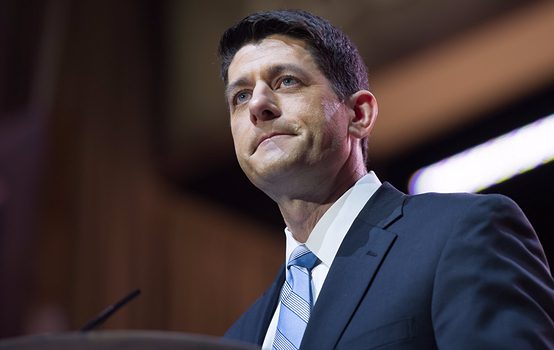A Health-Care Fiasco

No doubt you’ve already heard that pretty much everyone seems to hate the GOP’s new health-care plan. Conservatives think it’s too generous; liberals (and reform-minded conservatives) think it’s too stingy; wonks across the spectrum think it won’t work.
I’m on paternity leave right now—my daughter decided to make her debut at the most inconvenient time possible, in the middle of the night between Friday and Saturday about a week before her due date. So I don’t have time to give the bill a full treatment. But here are my two cents about what may be the most problematic provision.
Obamacare prohibited insurers in the individual market from discriminating on the basis of preexisting conditions. That’s incredibly popular, but it’s also incredibly dangerous, because it creates an incentive for people to wait until they get sick before buying health insurance—it will cost the same either way. When some healthy people opt out of the market, premiums go up for the healthy people who remain, making the incentive to go uninsured even greater. If this process feeds on itself for long enough, you’ve got yourself a “death spiral.”
Obamacare’s solution is the individual mandate: everyone is required to buy insurance, and you pay a penalty if you don’t. This is problematic for two reasons. One, it forces individuals to buy a product from a private company; and two, the penalty is still often cheaper than insurance.
So what did the GOP come up with? Instead of a penalty for not having insurance, people who let their coverage lapse will have to pay the insurance company an extra 30 percent for the first year if they ever want to get insured again. This is a pretty weak incentive against going uninsured—even if you get sick just a year after letting your coverage lapse, you’ll save an amount equal to about 70 percent of a year’s premiums. (You save 100 percent of a year’s premiums while you’re uninsured and then pay 30 percent of a year’s premiums as a penalty.) And since the penalty applies whether or not you’re sick when you sign back up, it’s actually a disincentive to getting insured again while you’re still healthy.
One last observation: there’s another way to handle the situation, one that some conservative wonks have suggested but that hasn’t gotten much traction in the overall debate.
The GOP plan already provides refundable tax credits that people can use to buy insurance (though they phase out at higher incomes). The trick is to make sure those credits are used without resorting to a coercive mandate. This can be done through the concept of a “default plan” or “automatic enrollment.”
Basically, you don’t have to sign up for insurance if you don’t want to. But if you don’t, your credit (or some portion of it) is given to an insurance company that is willing to cover you in the event you change your mind. That shouldn’t be hard to arrange, because people who don’t bother to use their credits will be disproportionately healthy. This creates universal coverage—more than can be said for Obamacare—without a mandate. The only downside is that it will cost more if all the credits, instead of just some of them, are used.
Okay, back to changing diapers.
Robert VerBruggen is managing editor of The American Conservative.
Comments